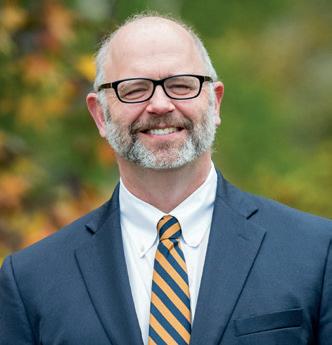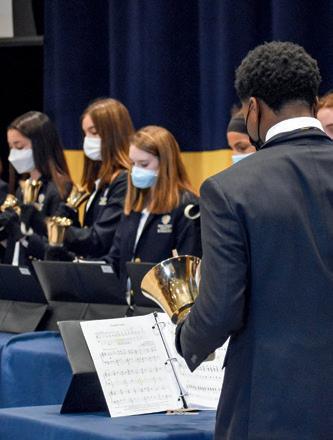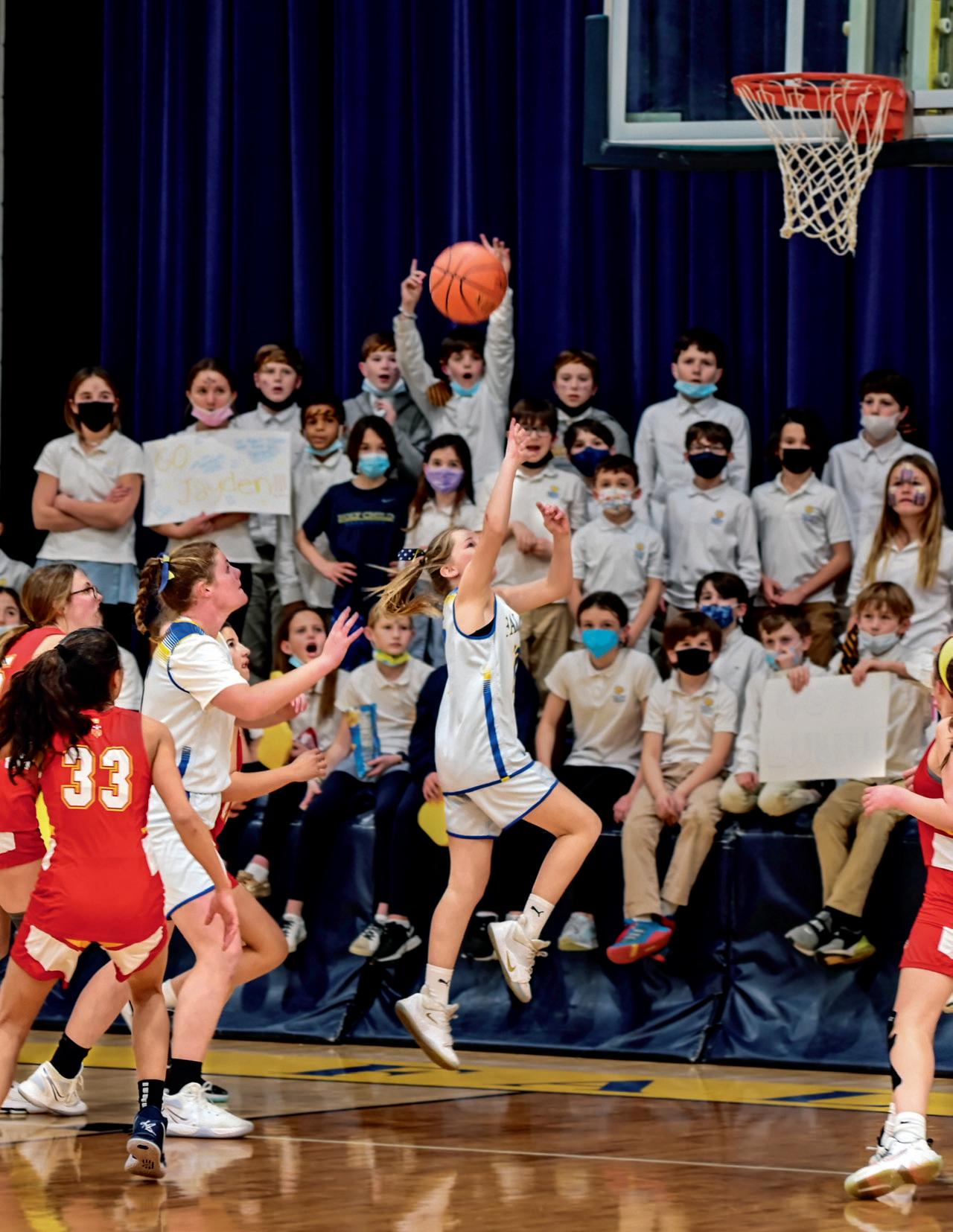
2 minute read
A Message From Tom Lengel


Advertisement
Dear Friends and Supporters,
We are proud of the academic reputation of Holy Child School at Rosemont, and our academic outcomes speak to the strength of our curriculum. Our high school admissions continue to be “best in class” and, more importantly, graduates surveyed after their freshman year of high school consistently report being well-prepared academically— approximately 80 percent are enrolled in at least one honors class—and socially.
Good schools recognize the impact of clubs, sports, and activities on children’s development, and devote almost as much time, effort, resources, and intentionality to these offerings. The old collective term for this was the extracurricular program of the school; a more modern way to describe this is the cocurricular program, since these offerings are in many ways as important to a child’s education and growth as are academics.
For K–8 students, the athletic field, court, and stage are essentially different types of classrooms, and the coaches and directors are teachers simply educating in a different venue. Their “curriculum” encompasses the soft skills of cooperation, teamwork, and selfdiscipline as they work toward a common goal or learn from disappointment—all essential skills for the demands of twenty-first-century careers.
This edition of “Cachet” magazine highlights the school’s cocurricular program, both what we offer and why we place such value on learning and growth outside the traditional classroom setting. Through these pages, we underscore the important aspects within our cocurricular program that set us apart. Our no-cut policy applies to the Spring Play, choruses, musical ensembles, and sports. Our Middle School sports teams practice on campus almost two hours each day, whereas most K–12 schools do not provide such access, or dedicated time beyond the school day, to their sports facilities for middle school students.
Cornelia Connelly, our foundress, believed in the importance of the fine and performing arts when she taught in Victorian England. A century and a half later, our cocurricular program honors her emphasis on educating the “whole child.” She reminded us to “practice virtue, little by little, in act after act.” That is what we would call personal growth and is one of our Holy Child Goals. Playing on a team, performing on stage, and participating in clubs are all ways that we inculcate that personal growth in this generation of Holy Child students.
Sincerely,
Thomas G. Lengel P’12 Head of School



